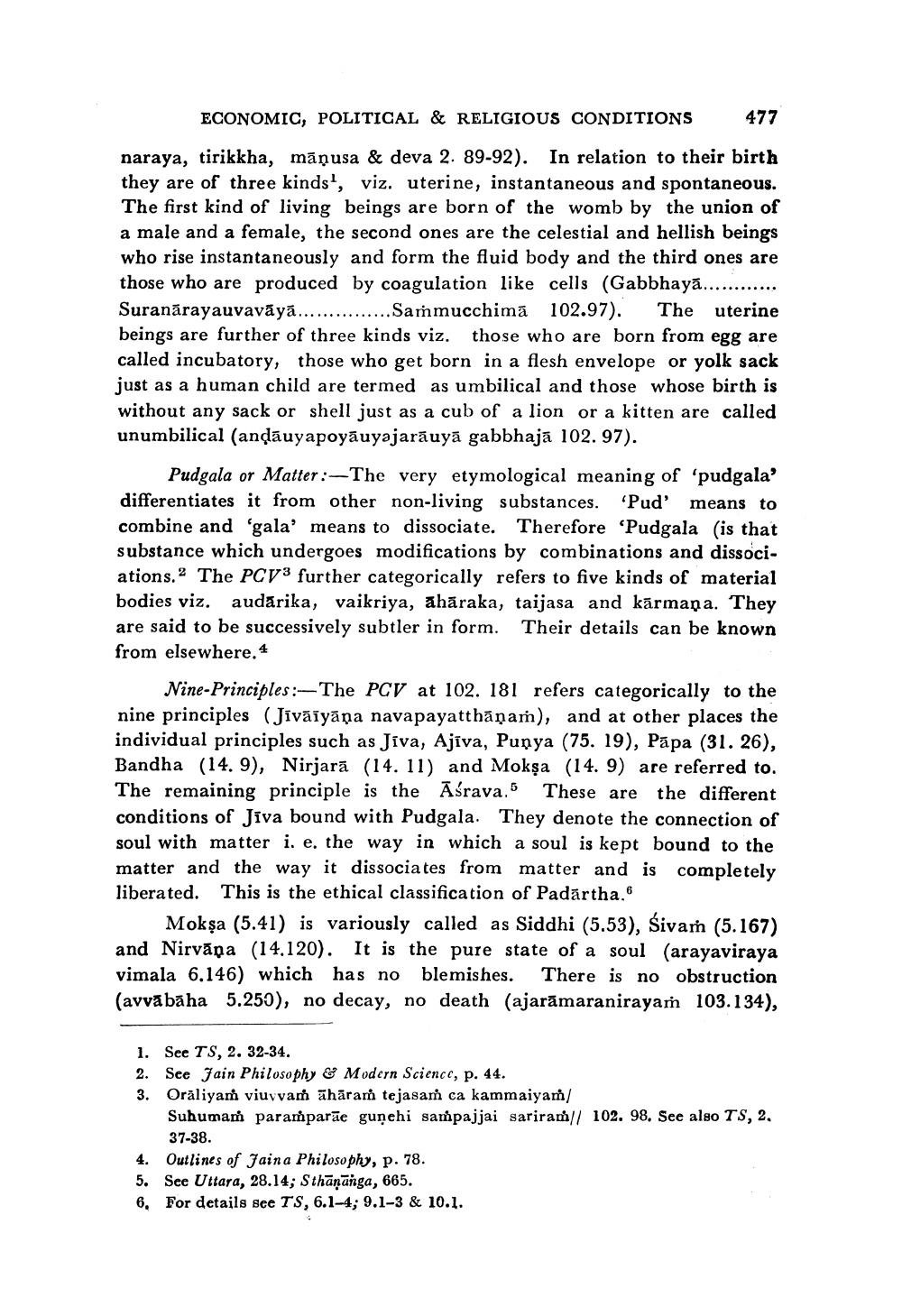________________
ECONOMIC, POLITICAL & RELIGIOUS CONDITIONS
477
naraya, tirikkha, māņusa & deva 2. 89-92). In relation to their birth they are of three kindst, viz. uterine, instantaneous and spontaneous. The first kind of living beings are born of the womb by the union of a male and a female, the second ones are the celestial and hellish beings who rise instantaneously and form the fluid body and the third ones are those who are produced by coagulation like cells (Gabbhayā............ Suranārayauvavāyā...............Sammucchimā 102.97). The uterine beings are further of three kinds viz. those who are born from egg are called incubatory, those who get born in a flesh envelope or yolk sack just as a human child are termed as umbilical and those whose birth is without any sack or shell just as a cub of a lion or a kitten are called unumbilical (andāuyapoyāuyajarāuyā gabbhajā 102. 97).
Pudgala or Matter :-The very etymological meaning of 'pudgala' differentiates it from other non-living substances. "Pud' means to combine and 'gala' means to dissociate. Therefore 'Pudgala (is that substance which undergoes modifications by combinations and dissociations. 2 The PCV 3 further categorically refers to five kinds of material bodies viz. audarika, vaikriya, ahāraka, taijasa and kārmana. They are said to be successively subtler in form. Their details can be known from elsewhere. 4
Nine-Principles : The PCV at 102. 181 refers categorically to the nine principles (Jivāīyāņa navapayatthāņam), and at other places the individual principles such as Jiva, Ajiva, Punya (75. 19), Pápa (31. 26), Bandha (14. 9), Nirjarā (14. 11) and Mokşa (14. 9) are referred to. The remaining principle is the Aśrava.5 These are the different conditions of Jiva bound with Pudgala. They denote the connection of soul with matter i. e, the way in which a soul is kept bound to the matter and the way it dissociates from matter and is completely liberated. This is the ethical classification of Padārtha.
Mokşa (5.41) is variously called as Siddhi (5.53), śivaṁ (5.167) and Nirvāna (14.120). It is the pure state of a soul (arayaviraya vimala 6.146) which has no blemishes. There is no obstruction (avvabaha 5.250), no decay, no death (ajarāmaranirayam 103.134),
1. See TS, 2. 32-34. 2. See Jain Philosophy & Modern Science, p. 44. 3. Orāliyam viuvvam āhārami tejasam ca kammaiyam/
Suhumam paramparāe gunehi sampajjai sariramil 102. 98. See also TS, 2.
37-38. 4. Outlines of Jaina Philosophy, p. 78. 5. See Uttara, 28.14; Sthāṇānga, 665. 6. For details see TS, 6.1-4; 9.1-3 & 10.1.




